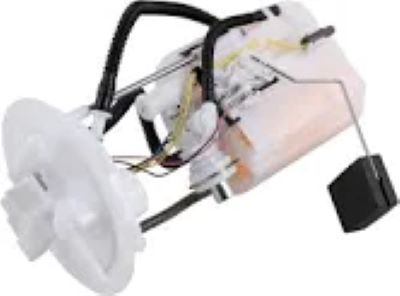One of the most common problems in fuel pumps is pump failure due to being overheated which will make your vehicle will run out properly. Fuel pumps function best at a temperature range somewhere between 140°F to 160°F, anything higher could spell disaster and result in failure often occasioned by various reasons.
A common issue of overheating is the importance of fuel flowunami. Higher temperatures occur when a fuel pump runs but is inadequately cooled by the fuel. For example, if the pump has to pull fuel through a 1/4 tank of gas or less, it can bog down and operate up to ~20% less efficiently. This wasted power can quickly increase the temperature of the device, resulting in damage to internal parts.
Problems with Electricity:It also adds to overheating. If a pump draws too much current it may overheat. The carb 500 requires 4.6 pounds of fuel pressure and the EFI version requires between 9-13, with most fuel pumps pulling between 3 to 10 amps; anything over that is a sign of a short or a bad relay, which could lead to overheating. Jane L, an automotive technician, says: “You can prevent unexpected fuel pump failures by regularly inspecting its electrical system.

A second point is that not all fuels are the same value for money. Will a clogged filter strain the pump and cause it to work harder than required? More than 30% of fuel pumps can be attributed to poor quality fuel as demonstrated by the real world studies, this results in over strained operations.
Another pointing-to sign of fuel pump overheating is mechanical wear. All of this contributes to worn parts within the pump over time, generating additional friction and heat as they do. A fuel pump on average ends up failing after 100K miles and even sooner if maintenance is not performed just like anything else.
When temperatures are high, this problem is enhanced. This risk is especially acute in areas where temperatures commonly go over 90°F (32°C), and particularly for older cars without the cooling systems common to modern cars. According to a Automotive Service Association (ASA) report, overheating is one of the most common vehicle problems that vehicles face when dealing with extreme conditions.
In conclusion, a fuel pump might fail and overheat from low fuel flow rates, electrical issues, poor-quality gasoline, mechanical wear & very high ambient temperatures. These factors help to improve the life and performance of your fuel pump. For more information about how to maintain your fuel pump, take a look at Fuel Pump.
